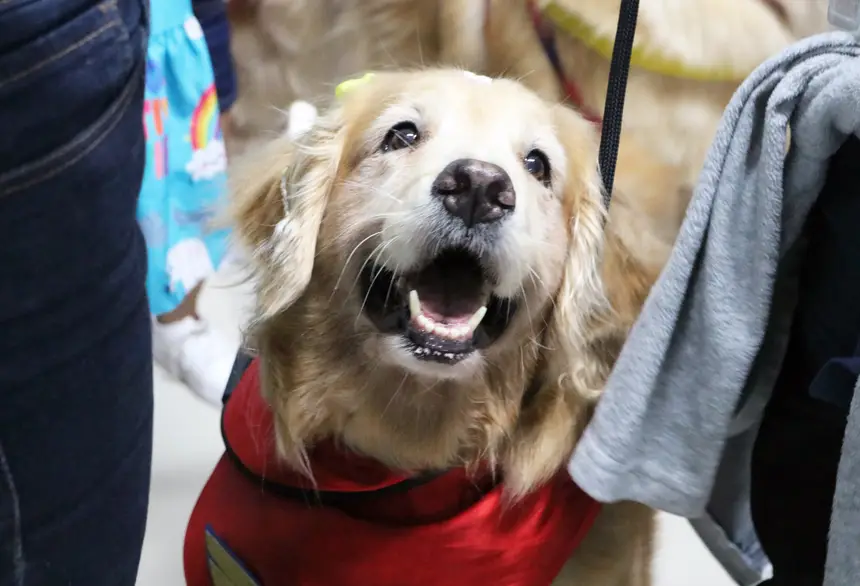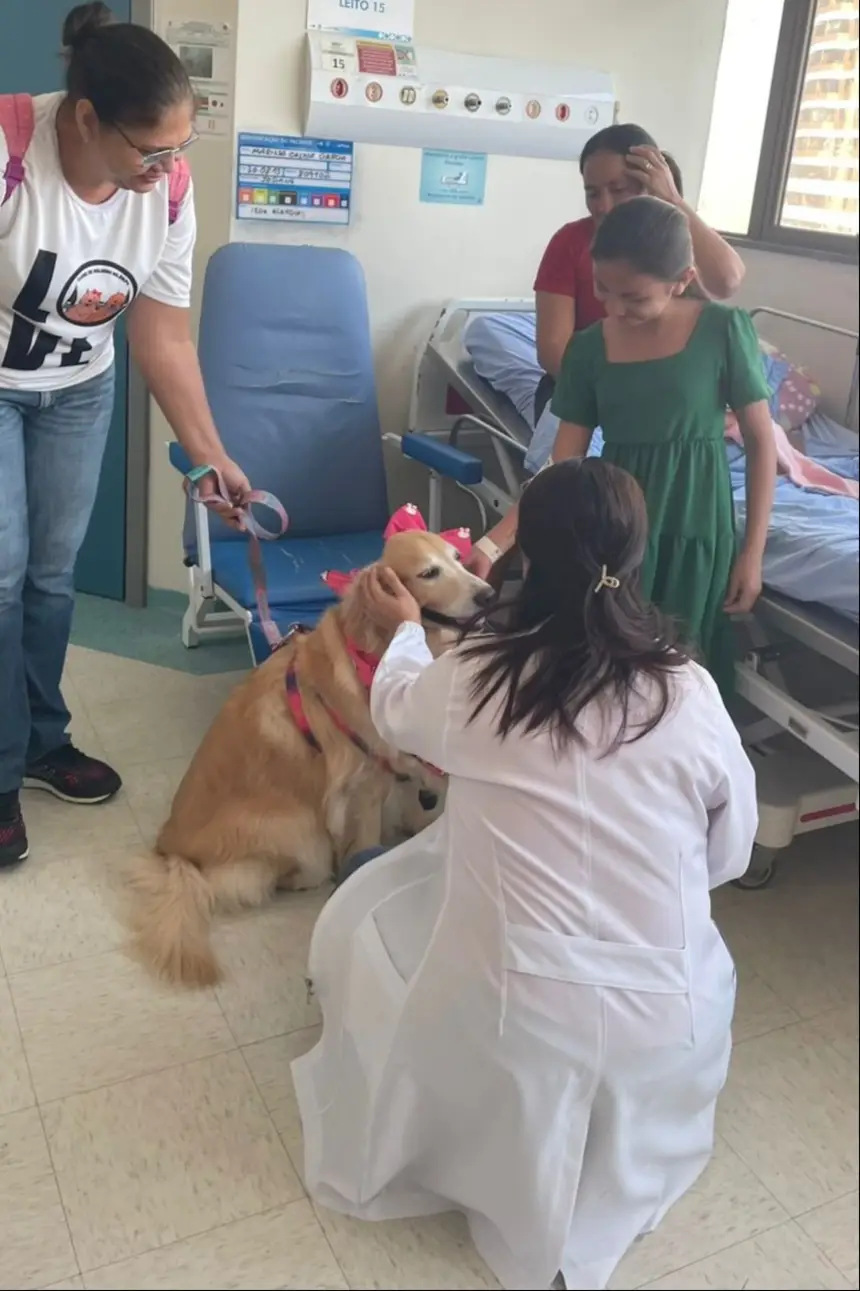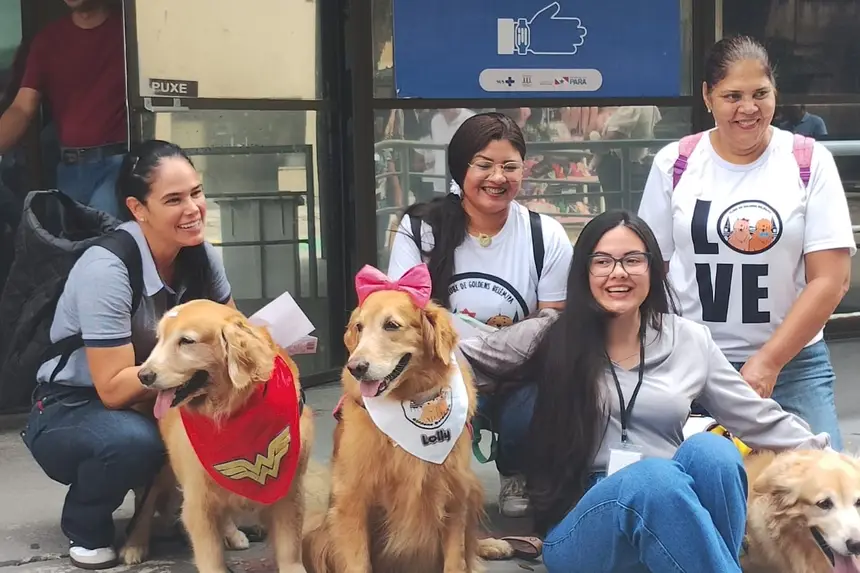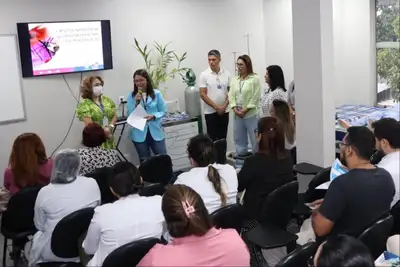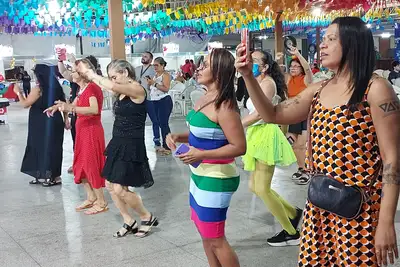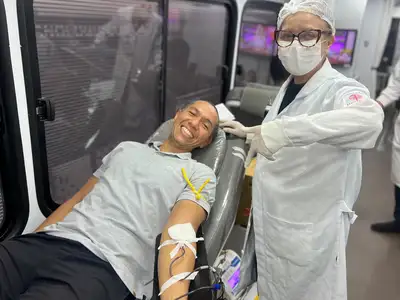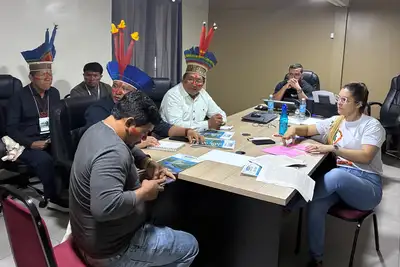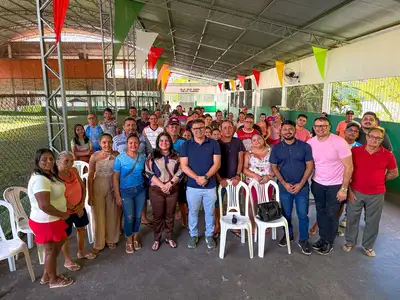Children treated by Santa Casa do Pará interact with special animals from the Goldens Club
Hospitalized patients in the pediatric ward and those treated in the cleft lip and palate outpatient clinic receive visits from golden retriever dogs and their guardians
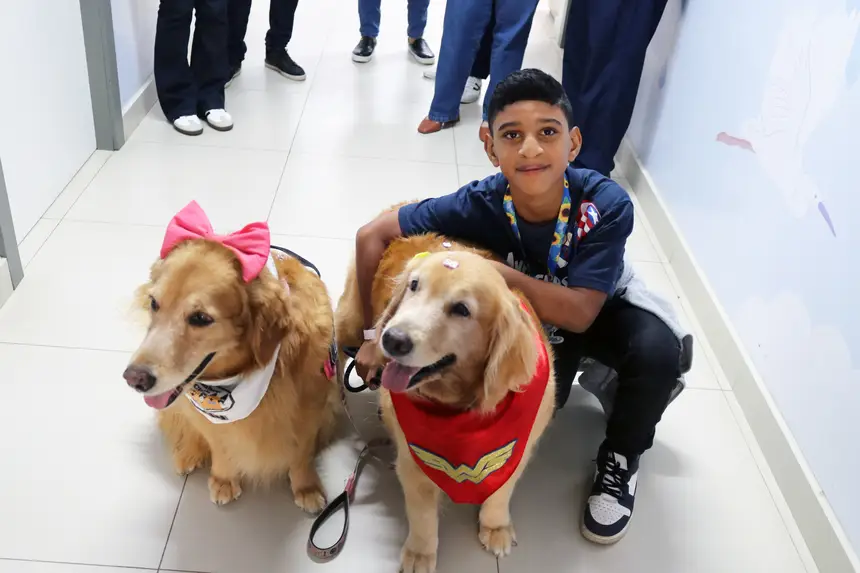
An infectious happiness took over the faces of the children and their companions on the morning of this Wednesday (29) at Santa Casa, upon receiving visits from the dogs Amora, Lolly, and Sol and their guardians. Marli Albino, a retired resident of Santa Izabel in northeastern Pará, brought her grandson Antony Lauan for treatment at the cleft lip and palate outpatient clinic and reported that she loved the interaction with the animals. "My grandson loves animals; he has cats and pet dogs at home. And he interacts very well with the pets. This activity here in the outpatient clinic with these three beautiful dogs is very creative. We loved the visit from these animals here."
The dogs are part of the Goldens Club Belém. All are properly vaccinated, dewormed, and have parasite control treatment. This work with patients is carried out in several hospitals in Belém.
Tatiana da Silva Baia, guardian of the pet Lolly, thanked for the welcome given to the animals. "Demonstrating through the assistance of the dog that we can offer empathy in moments of nervousness and anguish drives us in these actions. Humanization within the hospital is essential for patients, families, professionals, and the community in general. And the Goldens pela Vida group values this; empathy and the golden retrievers deliver love."
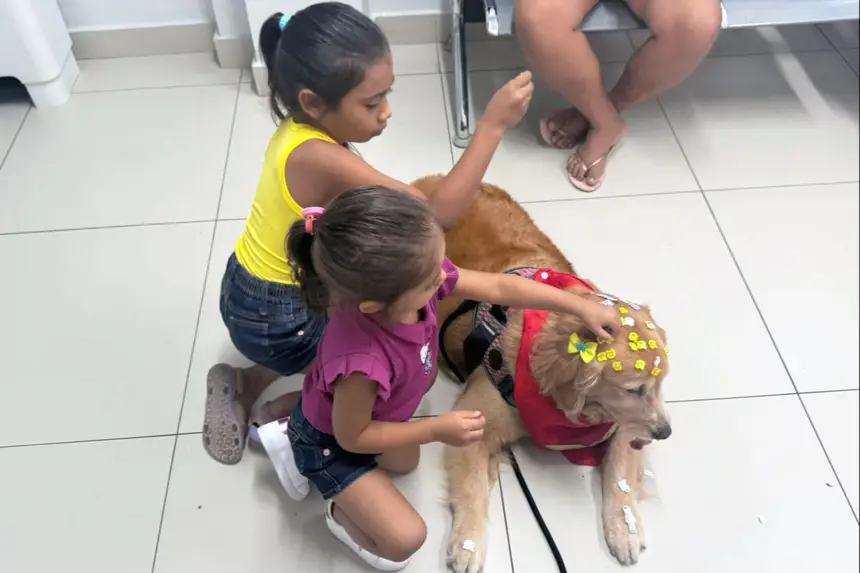
Interaction - Gisele Sizo, from the Humanization Committee of the Santa Casa Foundation, informs that the committee was approached by the coordination of the cleft lip and palate outpatient clinic about the possibility of implementing dog-assisted therapy in the institution. "The committee embraced the cause with immediate authorization from the Hospital Infection Control Commission. The project's main objective is to integrate dog-assisted therapy as an official complementary practice at Santa Casa."
"The proposal is to develop a safe and effective protocol that uses interaction with dogs therapeutically to promote improvement in the emotional and physical state of patients. With this, we aim to reduce levels of anxiety, stress, and symptoms of depression among hospitalized patients, contributing to a more humanized recovery and strengthening the welcoming actions within the institution," points out Gisele Sizo.
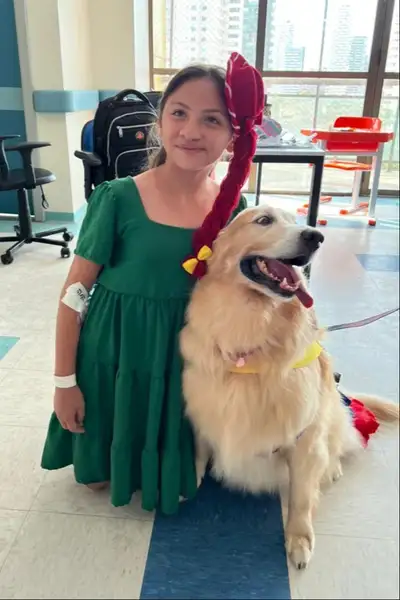
Alessandra Souza e Silva, guardian of Amora, highlights that this connection with the children happens after a training and socialization process. "This connection made with children in the hospital is extended to other sectors as well, such as nursing homes and shelters; they do all this work. We are from the Goldens por Belém group, and within this group, we formed the Goldens pela Vida project, where we conduct these visits."
"The institutions contact the administration, and we conduct the visits. And this interaction is rewarding for both them and us. We came to visit a child who was going to have palate surgery, and she was very anxious. It was a very good interaction. She dressed the dog in a costume, held it, and walked around the entire ward showing the little dog to all the hospitalized patients. In the end, she was already smiling. It was wonderful," emphasizes guardian Alessandra.
According to Andresa Ferraz, president of the Humanization Committee of the Santa Casa Foundation, the visit of dogs in hospitals is recommended as a person-centered complementary intervention. "When well-protocolized, it can reduce anxiety and pain, improve mood and engagement, and strengthen the therapeutic bond. With clear eligibility criteria, trained staff, and partnership with infection control, as we did today, it is a humanizing resource that adds value to comprehensive care."



